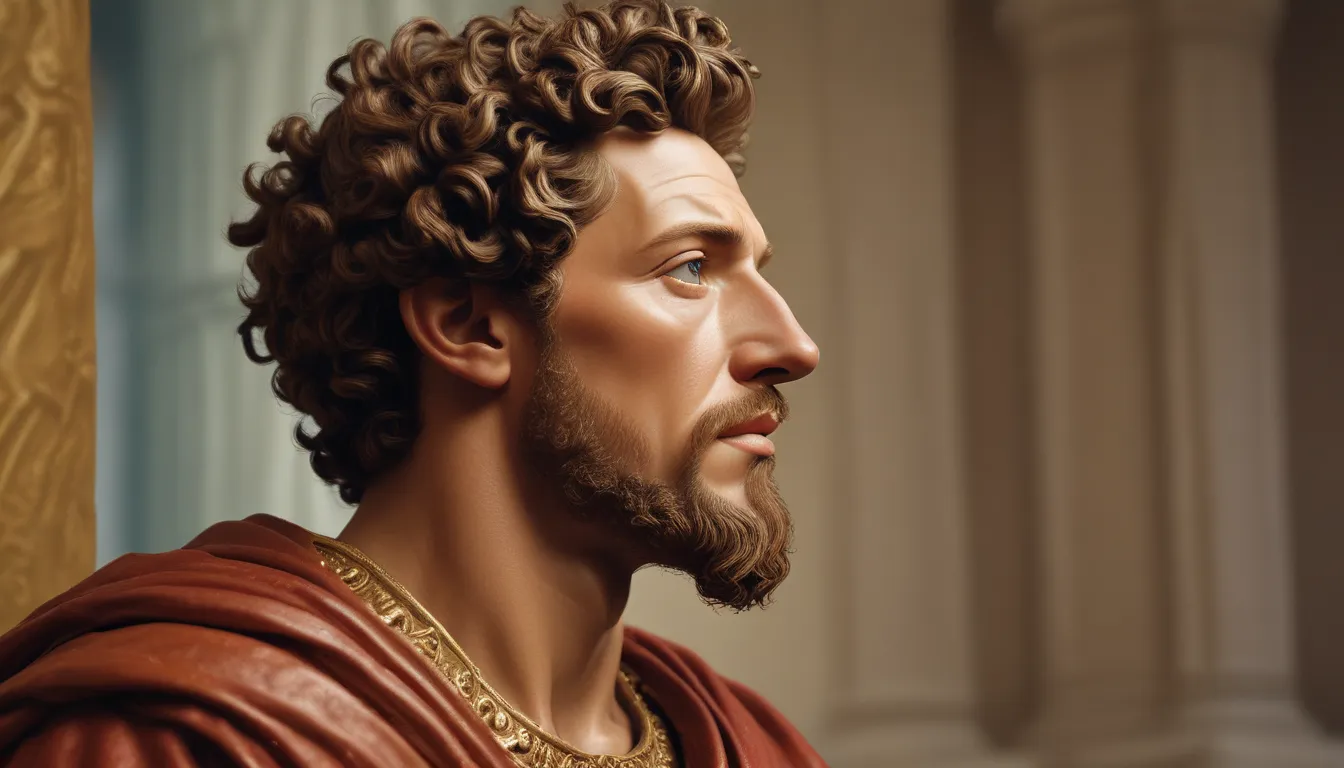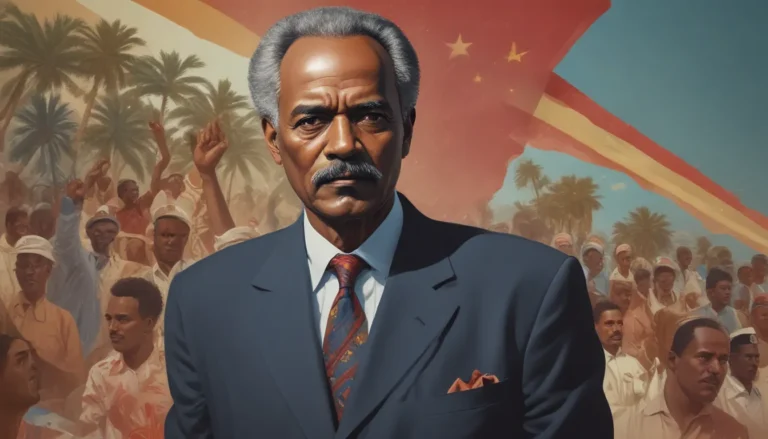The images in our articles may not match the content exactly. They are used to grab your attention, not to show the exact details in the text. The images complement the text but do not replace it.
Welcome to a captivating journey through the life and legacy of Marcus Aurelius, the esteemed Roman Emperor and Stoic philosopher. Known for his wisdom, leadership, and enduring influence on Western philosophy, Marcus Aurelius continues to inspire individuals seeking self-improvement and inner peace. In this article, we will uncover 19 intriguing facts about Marcus Aurelius that shed light on his personal life, accomplishments, and unique characteristics. From his early influences to his renowned philosophy, get ready to be amazed by the surprising secrets behind one of history’s most revered figures.
The Philosopher-King: A Compassionate Ruler and Wise Philosopher
- Compassionate Leadership: Marcus Aurelius, the stoic Roman Emperor, was not only a wise philosopher but also a compassionate leader who valued ethics in governing the empire.
- Enduring Legacy: His timeless work, “Meditations,” continues to inspire individuals seeking self-improvement and inner peace, showcasing his enduring influence on Western philosophy.
Marcus Aurelius: The Philosopher Emperor
Early Education and Love for Philosophy
- Exceptional Education: Marcus Aurelius received an exceptional education in philosophy from a young age under renowned philosophers like Herodes Atticus and Marcus Cornelius Fronto.
- Stoicism Influence: Stoicism heavily influenced Marcus Aurelius’ personal and political life, teaching him to control his emotions and prioritize the well-being of the empire above personal desires.
An Empress by His Side
- Influential Partner: Marcus Aurelius’ wife, Faustina the Younger, played a significant role in his life, known for her wit and intelligence as his partner and advisor.
The Legacy of Compassion and Ethics
- Philosopher-King: Referred to as the “Philosopher-King” for his commitment to philosophy and wise rule, Marcus Aurelius emphasized ethics in governing the empire and leading by example.
- Stoic Compassion: Despite being a military leader, Marcus Aurelius showed remarkable compassion towards his enemies, believing in treating captives with respect and dignity.
The Philosopher’s Influence and Legacy
- Philosophical Influences: Marcus Aurelius admired the teachings of Epictetus and Plato, referencing their works in his Meditations and showcasing his deep appreciation for their philosophies.
- Golden Age of Rome: Under Marcus Aurelius’ leadership, the Roman Empire experienced a period of relative peace and prosperity, known as the “Golden Age.”
Legacy and Impact
- Last of the Good Emperors: Marcus Aurelius was the last of the “Five Good Emperors,” known for their competent rule and dedication to the welfare of the Roman Empire.
- Multi-Talented Leader: Marcus Aurelius excelled not only as a military leader but also as a talented writer and orator, contributing to his success as both a philosopher and ruler.
Personal Reflections and Retreats
- Letters to Himself: Marcus Aurelius wrote a series of personal letters to himself, exploring his innermost thoughts, struggles, and aspirations.
- Philosopher’s Retreats: He frequently retreated to his country estates to find solace and contemplate, reconnecting with nature and reflecting on his thoughts.
The Lasting Influence of “Meditations”
- Enduring Wisdom: Marcus Aurelius’ Meditations remain a treasured guide to life, inspiring individuals seeking self-improvement and inner peace across centuries.
Conclusion: The Legacy of Marcus Aurelius
In conclusion, Marcus Aurelius was a remarkable figure in history, known for his stoicism, wisdom, and leadership as Roman Emperor. His enduring influence on Western philosophy and the Roman Empire continues to inspire individuals seeking personal growth and introspection. From his philosophical writings to his compassionate leadership, Marcus Aurelius remains a symbol of resilience and ethical behavior, shaping the way we approach life’s challenges and virtues.
FAQs: Unraveling the Mysteries of Marcus Aurelius
- Role in the Roman Empire: Marcus Aurelius served as the Roman Emperor from 161 to 180 AD, leading the empire during internal conflict and external threats.
- Philosopher and Stoic: Yes, Marcus Aurelius was a prominent philosopher, embracing the principles of stoicism in his personal and political life.
- Significance of his Writings: Marcus Aurelius’ writings, particularly “Meditations,” provide valuable insights into stoic philosophy and offer guidance in navigating life’s challenges.
- Legacy and Influence: Marcus Aurelius’ teachings on resilience, virtue, and self-reflection continue to influence modern society, inspiring individuals across generations.
Embark on a journey through the life and legacy of Marcus Aurelius, exploring the depths of his wisdom, leadership, and compassion for a truly enlightening experience. As you uncover the surprising facts and hidden truths behind this iconic figure, may you be inspired to embody his virtues of self-improvement, ethics, and resilience in your own life.






